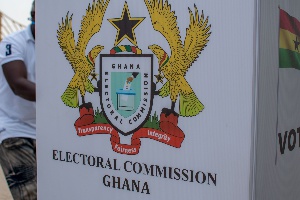 File photo: From the beginning of the fourth republic every election has had its peculiar challenges
File photo: From the beginning of the fourth republic every election has had its peculiar challenges
The future of any democracy depends on the ability of the people to make choices between alternative policies, decisions and to be able to embark on certain socio-political reforms. Democratic governance has for past decades played a salient role in the development of nations.
Ghana which is an important player within the sub-region and beyond is indeed a beacon of the rule of law, democracy, good governance, rights and freedom but is yet to recover from the stress of the December 7, 2020 presidential and parliamentary elections.
From the beginning of the fourth republic every election has had its peculiar challenges.
Election 2020 was not an exception. Much as the elections had to its credit a good solid and impressive achievements, it also came with challenges that would go down the memory lane as unbearably close. The process appeared to have exposed deep flaws in how Ghana chooses its leaders.
Some of those flaws are as old as the nation itself, while others are more recent creations that seemed to have been overlooked by civil society organizations and the likes.
For instance, the declaration of election results is extremely sensitive, so as the institution itself. The alleged revision and swapping of figures of election results, challenges related to collation, consistent engagement with political parties before, during and after elections etc were a clear manifestation of the fact that a comprehensive review is needed to consolidate the reputation of the institution of the EC and the conduct of our electoral process.
Without a slight of doubt, democratic governance in any sovereign jurisdiction is well consolidated where there are strong institutions. Among these institutions is the Electoral Commission (EC) which is responsible for the supervision and declaration of elections results.
Thus the Electoral Commission appears to be the most sensitive organization in any democratic dispensation that must be robust, strong and independent in its conduct of organizing, supervising and declaring of election results.
To discover the reality, the outcome of an electoral process depends on the conduct of the EC and the perception of the people on the institution. Any lack of trust on the behavior of the EC can give rise to political and electoral violence.
Judging by the terrain since the advent of the fourth republic, the concentration of power on the executive to choose the Electoral Commissioner seems to pose a significant threat to the peace and security of our dear republic. The New Patriotic Party NPP questioned the credibility of Afari Gyan, Amadu Sule, and Charlotte Osei etc.
The credibility of a new breed chaired by Madam Jean Mensa has also been subjected to questions by the National Democratic Congress NDC. This means the two major parties have created a scenario or culture of mistrust on the independence of the EC once it is seen to be appointed by the other party in government. It is a clear show of disdain for our democratic norms and institutions.
A comprehensive mechanism is therefore needed in place to remedy this challenge before the country is grappled by any potential ramifications that will mar the reputation of our civilized country. It is therefore, suicidal for Ghana to continue on this endless cycle of skepticism as it can frustrate a peaceful transition of power now and in the future.
It is on the basis of the above challenges that the Office of National Imam of the Shia Muslim Community of Ghana deems it duty bound to call on the relevant stakeholders in both scholarly and policy discourse including the Legislature, Executive, Judiciary, Media, etc to strongly support the course of amending the constitution in order to find means and ways of selecting the EC.
By so doing, a body should be constituted to be responsible for the appointment of the EC instead of the executive arm. Ghanaians need peace and it can only be consolidated if all the parties and electorate have confidence in the independence and fairness of the EC.
Consultation and Building of Consensus
Consultation and building of consensus has since been one of the conventional responsibilities of the EC. The conduct of the EC in the December 7 presidential and parliamentary elections relative to consensus building is been quite abysmal.
The convention of constant engagement with relevant stake holders before, during and after elections ensures trust and leads to the consolidation of peace and security of the nation.
By its fundamental character election, is conflict. Thus the management of the conduct of elections presupposes that one is managing conflict involving different factions who compete for a single goal. In this vain, we all owe it to our dear republic by ensuring that sanity prevails before, during and after the elections.
It is on this basis we once again renew our call on all relevant stake holders to join us in championing the course of consolidating the rule of law and accountable governance. For it is only in discovering and adapting ourselves to the reality that Ghana can find peace and contentment.